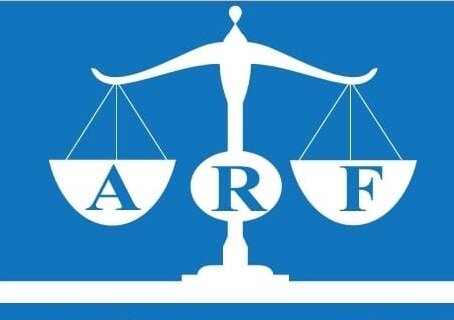Best Faith-Based Law Lawyers in Uganda
Share your needs with us, get contacted by law firms.
Free. Takes 2 min.
Or refine your search by selecting a city:
List of the best lawyers in Uganda
About Faith-Based Law in Uganda
Faith-Based Law in Uganda refers to the legal principles and practices rooted in religious beliefs and traditions that are recognized within the Ugandan legal framework. Uganda is a culturally diverse nation with strong religious influences, particularly from Christianity and Islam. These faiths have respective legal systems that may influence personal law-including marriage, divorce, inheritance, and other civil matters-in ways that align with religious precepts, while still being subject to the overarching national legal structure.
Why You May Need a Lawyer
Individuals may require legal assistance in Faith-Based Law for several reasons:
- Marriage and Divorce: If your marriage is conducted under religious rites, you may need guidance to ensure recognition under national law.
- Inheritance and Wills: Understanding the intersect of religious laws with civil laws on matters of inheritance.
- Religious Disputes: Navigating conflicts that may arise within religious communities or between religious bodies and individuals.
- Employment Disputes in Religious Institutions: Legal issues regarding employment contracts or disputes within faith-based organizations or schools.
- Human Rights Issues: Balancing religious practices with human rights as outlined by national and international law.
Local Laws Overview
Faith-Based Law in Uganda is influenced by several legal sources including:
- The Constitution of Uganda: Provides for freedom of religion, subject to public order, health, and morality.
- The Hindu Marriage and Divorce Act: Governs marriage and divorce for Hindus in Uganda.
- The Marriage Act and Divorce Act: Governs civil and Christian marriages in Uganda, allowing incorporation of some religious rituals.
- The Mohammedan (Islamic) Laws: Partially inform specific rights and responsibilities within Islamic marriages and matters of inheritance.
- Customary and Traditional Practices: Certain customary laws that have religious connotations might still be observed, though subject to national laws.
Frequently Asked Questions
What is the difference between civil and religious marriage in Uganda?
Civil marriages are governed by the national laws of Uganda, requiring registration with a government entity. Religious marriages are solemnized under religious rites but still need to adhere to national registration laws for legal recognition.
Can a religious marriage be legally recognized without civil registration?
No, for a marriage to be recognized legally in Uganda, it must be registered according to civil law, regardless of any religious ceremonies performed.
Are religious divorces recognized in Uganda?
Religious divorces are recognized only if they comply with national law procedures for divorce. Both religious and civil requirements must be fulfilled.
How does inheritance work under Faith-Based Law?
Inheritance may follow specific religious prescriptions, but must also conform with national laws. Where conflicts arise, national law typically presides, though allowances for religious practices may exist.
Can I write a will according to my religious beliefs?
You can draft a will in accordance with your religious beliefs, but it should be compliant with statutory requirements under Ugandan law to ensure its enforceability.
What is covered under Islamic Law in Uganda?
Specific personal matters like marriage, divorce, and inheritance can be influenced by Islamic Law, as long as they don't conflict with the constitution or statutory laws.
Can I be fired from a religious institution for refusing to comply with faith-based requirements?
This depends on the employment and organizational policies, but must align with the national labor laws protecting against discrimination.
How does one handle a dispute within a religious community?
Legal recourse may be sought through civil courts unless the dispute resolution process has been clearly outlined and agreed upon within the religious community under their governance.
What rights do I have if a religious practice violates national law?
National law presides over religious practices, ensuring protection of basic human rights. Legal help can be sought if injury or discrimination occurs.
Is there any legal accommodation for traditional tribal practices?
Yes, to a certain extent, as long as they comply with the constitutional and statutory laws of Uganda.
Additional Resources
For those seeking further information and support, the following resources may be useful:
- Uganda Law Society: Provides a directory of lawyers specialized in various fields, including Faith-Based Law.
- The Ministry of Justice and Constitutional Affairs: Offers resources and guidance on legal processes in Uganda.
- Faith-based Organizations: Many provide educational materials or legal support within their communities.
- Human Rights Commission of Uganda: For guidance on cases where faith-based and human rights laws intersect.
Next Steps
If you require legal assistance in matters of Faith-Based Law, it is advisable to:
- Consult with a Specialist Lawyer: Engage a lawyer who is well-versed in both national and religious legal codes applicable to your situation.
- Gather Relevant Documents: Prepare any religious and civil documentation related to your case, such as marriage certificates or wills.
- Seek Mediation: Consider community or religious mediation services if applicable, before pursuing legal action.
- Visit a Legal Aid Center: For those unable to afford private counsel, legal aid centers can provide support.
Lawzana helps you find the best lawyers and law firms in Uganda through a curated and pre-screened list of qualified legal professionals. Our platform offers rankings and detailed profiles of attorneys and law firms, allowing you to compare based on practice areas, including Faith-Based Law, experience, and client feedback.
Each profile includes a description of the firm's areas of practice, client reviews, team members and partners, year of establishment, spoken languages, office locations, contact information, social media presence, and any published articles or resources. Most firms on our platform speak English and are experienced in both local and international legal matters.
Get a quote from top-rated law firms in Uganda — quickly, securely, and without unnecessary hassle.
Disclaimer:
The information provided on this page is for general informational purposes only and does not constitute legal advice. While we strive to ensure the accuracy and relevance of the content, legal information may change over time, and interpretations of the law can vary. You should always consult with a qualified legal professional for advice specific to your situation.
We disclaim all liability for actions taken or not taken based on the content of this page. If you believe any information is incorrect or outdated, please contact us, and we will review and update it where appropriate.
Browse faith-based law law firms by city in Uganda
Refine your search by selecting a city.

















